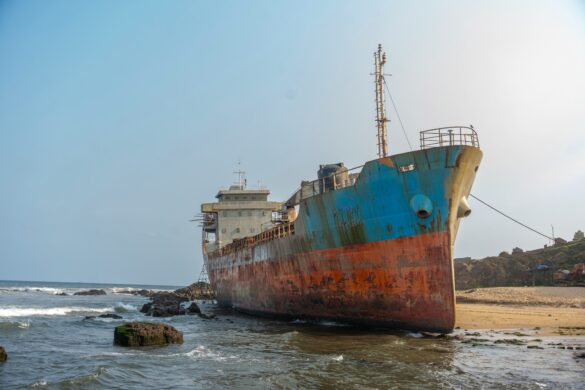Bangladesh is seeking Japanese investment and technical expertise to upgrade its shipbreaking yards into internationally recognized green facilities under the Hong Kong Convention, aiming to meet global environmental standards and maintain its leading role in ship recycling. The government has formally requested up to USD 100 million in support from Japan to help local yards modernise and secure certification, following the success of PHP Ship Recycling Facility in Chattogram, which became the first to achieve SoC certification under ClassNK after investing around USD 11 million in advanced safety systems, insulated flooring and specialised worker training. The country hosts over 150 shipbreaking yards, yet only seven have green certification and just 30 to 35 are currently operational. Experts warn that without major investment, many yards will fail to meet the June 2025 deadline for compliance set by the International Maritime Organization, risking a sharp drop in ship imports for dismantling and disrupting the steel industry, which depends on roughly 2.5 million tonnes of scrap annually. Transitioning to green standards is expensive, with costs ranging from Tk 30 to Tk 100 crore per yard, and many owners struggle to secure bank loans due to low profit margins and long payback periods. Authorities are considering low-interest financing and policy incentives to speed up upgrades, stressing that only certified yards will be allowed to operate in the future. Environmental groups highlight ongoing pollution from traditional open-beaching methods, which release hazardous materials into coastal areas, contaminate water and soil, and harm marine life. Worker safety also remains a serious issue, with frequent accidents, lack of proper medical facilities and inadequate protective gear putting lives at risk. While environmental reforms are necessary, labour groups urge a just transition plan that safeguards livelihoods, offers retraining programs and ensures fair compensation for affected workers during yard closures or restructuring. Japanese support is seen as crucial not only for funding infrastructure improvements but also for transferring expertise on safety protocols, waste management and advanced dismantling technologies. Successful collaboration could help Bangladesh keep its competitive edge in global ship recycling, sustain thousands of jobs and ensure cleaner industrial growth. However, experts caution that time is running short, and without strong policy action, financial backing and worker-focused reforms, the industry may lose market access to greener competitors. A balanced approach that combines environmental upgrades, social protections and international partnerships offers the best chance to modernise shipbreaking responsibly and secure a sustainable future for this vital sector
Bangladesh Seeks Japan Investment for Green Shipbreaking
37


